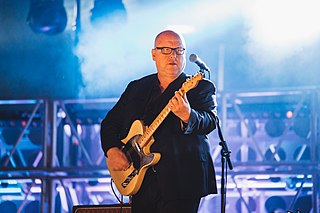
Charles Michael Kittridge Thompson IV is an American singer, songwriter, and guitarist. He is best known as the frontman of the alternative rock band Pixies, with whom he performs under the stage name Black Francis. Following the band's breakup in 1993, he embarked on a solo career under the name Frank Black. After releasing two albums with record label 4AD and one with American Recordings, he left the label and formed a new band, Frank Black and the Catholics. He re-adopted the name Black Francis in 2007.

Art of Noise were an English avant-garde synth-pop group formed in early 1983 by engineer/producer Gary Langan and programmer J. J. Jeczalik, along with keyboardist/arranger Anne Dudley, producer Trevor Horn, and music journalist Paul Morley. The group had international Top 20 hits with its interpretations of "Kiss", featuring Tom Jones, and the instrumental "Peter Gunn", which won a 1986 Grammy Award.
SPK were an Australian industrial music and noise music group formed in 1978. They were fronted by mainstay member, Graeme Revell on keyboards and percussion. In 1980 the group travelled to the United Kingdom where they issued their debut album, Information Overload Unit. In 1983 Sinan Leong joined on lead vocals. The group disbanded in 1988. Two years later Revell and Leong relocated to the United States, where Revell works as a Hollywood film score composer. According to Australian rock music historian Ian McFarlane, SPK were "at the forefront of the local post-punk, electronic/experimental movement of the late 1970s ... [their] music progressed from discordant, industrial-strength metal noise to sophisticated and restrained dance-rock with strange attributes".
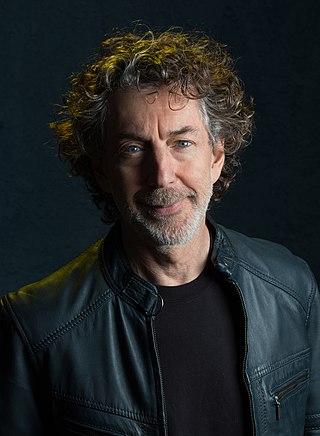
Simon Phillips is a US-based English jazz, fusion and rock drummer, songwriter, and record producer. He worked with rock bands during the 1970s and 1980s and was the drummer for the band Toto from 1992 to 2014.
Raymond Watts is an English musician, the founding and sole member of the industrial music project PIG, sometimes written as <PIG>.
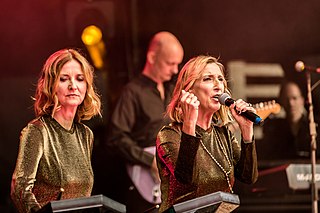
Propaganda is a German synth-pop band formed in Düsseldorf in 1982. They signed a recording contract with ZTT Records as early as 1983 and released their first single "Dr Mabuse" in 1984. Followed by their debut studio album, the critically acclaimed A Secret Wish, in 1985. Two of the album's singles, "Dr. Mabuse" and "Duel", were UK Top 30 hits. A second studio album, 1234 (1990), was recorded with a markedly different line-up and released by Virgin Records to less success. There have been several partial reformations of the group in the 21st century, with the original vocalists currently active as xPropaganda.

Shades of Deep Purple is the debut studio album by the English rock band Deep Purple, released in July 1968 on Tetragrammaton in the United States and in September 1968 on Parlophone in the United Kingdom. The band, initially called Roundabout, was the idea of former Searchers drummer Chris Curtis, who recruited Jon Lord and Ritchie Blackmore before leaving the project. The Mk. I line-up of the band was completed by vocalist/frontman Rod Evans, along with bassist Nick Simper and drummer Ian Paice, in March 1968.

"Give Peace a Chance" is an anti-war song written by John Lennon, and recorded with the participation of a small group of friends in a performance with Yoko Ono in a hotel room in Montreal, Quebec, Canada. Released as a single in July 1969 by the Plastic Ono Band on Apple Records, it is the first solo single issued by Lennon, released while he was still a member of the Beatles, and became an anthem of the American anti-war movement during the 1970s. It peaked at number 14 on the Billboard Hot 100 and number 2 on the British singles chart.
Noko is an English musician, multi-instrumentalist, composer and producer, has formed and/or played with a number of bands primarily as a guitarist or bassist. In chronological order they were: Alvin the Aardvark and the Fuzzy Ants, the Umbrella, the Pete Shelley Group, the Cure, Luxuria, Apollo 440, Stealth Sonic Soul, Fast, Maximum Roach, James Maker and Noko 440, Magazine, Raw Chimp, Levyathan, SCISM, Am I Dead Yet? and Buzzcocks.
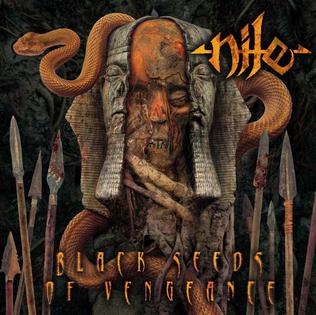
Black Seeds of Vengeance is the second album by American technical death metal band Nile, released on September 5, 2000 through Relapse Records. It was the first album in Nile's discography to mark a more complex musical direction, as well as feature extensive liner notes in the booklet, written by Karl Sanders to explain the concept and themes behind each song. It also was the band's first album recorded with vocalist/guitarist Dallas Toler-Wade, and features Derek Roddy as a session drummer, temporarily replacing previous drummer Pete Hammoura who left the band due to injuries sustained while touring. Bassist Chief Spires left shortly after touring for the album.
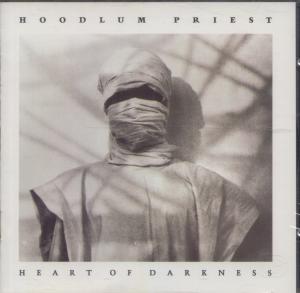
The Heart of Darkness was the debut album created by Hoodlum Priest. The album was minimally successful. It featured the first and only appearance of rapper Sevier, who left the band due to creative differences. During some time after the release of The Heart of Darkness, ZTT was bought out by Warner Bros, and the album was immediately deleted by request of Warner Bros's legal department. It was later re-released on the Hoodlum Priest website on 06/06/06. A remix of "Caucasian" entitled "Scanning" appeared on the follow-up Beneath The Pavement... The Beach.

Beneath the Pavement... is the second album by Hoodlum Priest. Released as an EP, it was only limited to 1200 copies, and is very hard to find. This album is somewhat different from the debut as it has no more rapping, featuring a more trip hop influenced element. The some of the tracks was produced by Raymond Watts of KMFDM fame, Howard Gray Of Apollo 440 and even Harley Davidson. due to the controversy that surrounded Caucasian's B-side Cop Killer a new version which was made and Derek said he apparently made 'on a night when two cops had been shot' was included in the song "Semtex Revolution".
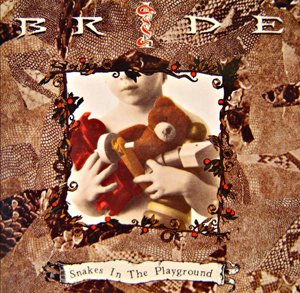
Snakes in the Playground is the fifth album by the band Bride. Seen by critics as the best release of Bride's hard rock era, Snakes in the Playground is commonly known as the breakthrough album in the band's career. This album would produce for the band more touring, press appeal, and two GMA Dove Awards for best song.

The Moment is the sixth album by British singer Lisa Stansfield, released by ZTT Records on 27 September 2004. It was her first new studio album since 2001's Face Up. The Moment was entirely produced by Trevor Horn, the acclaimed producer behind Frankie Goes to Hollywood and Seal. It garnered positive reviews from music critics who praised Stansfield's voice and the fact that an established artist like her is still evolving and experimenting. The Moment was released in the United Kingdom and Japan in September 2004 and in Europe in February 2005, and performed moderately on the charts. Two main singles released from the album include "Treat Me Like a Woman" and "If I Hadn't Got You". On 6 April 2015, The Moment was re-released with five bonus tracks, three previously unreleased.
The Sessions Band is an American musical group that has periodically recorded and toured with American rock singer-songwriter Bruce Springsteen in various formations since 1997.

Black Cards was an American electronic music band that formed in July 2010 as Fall Out Boy bassist Pete Wentz's new main project following the band's indefinite hiatus. Originally conceived as a four-piece electropop band, Wentz played bass guitar and wrote the band's lyrics, while singer Bebe Rexha filled in on vocals. The pair met when Wentz and producer Sam Hollander overheard Rexha recording demos at their studio. Nate Patterson and Spencer Peterson completed the lineup with guitar and drums respectively.
Ian Garfield Hoxley, known by his stage name Mary Byker is an English singer, record producer and DJ known for his work as the lead singer of Gaye Bykers on Acid, Pop Will Eat Itself, Pigface and Apollo 440.
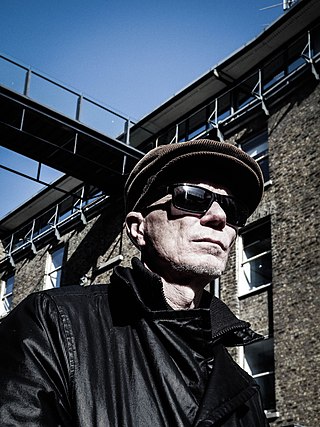
David Anthony Healy, who performs as David Virgin, is an Irish-born Australian musician, songwriter and record producer. In the 1980s he was a member of punk industrial noise group SPK, and later formed a post-punk band, Sekret Sekret. He was active in the 1990s and 2000s touring Australia and Europe. He performed and recorded both as a solo artist and as a member of numerous bands. He has produced music for artists including All The Queen's Horses, RUNAH Patricia Lalor, and SPK.

"Cop vs. Phone Girl" is a song by American rock band Third Eye Blind from their second extended play, We Are Drugs (2016). It was released as the lead single from the extended play on July 25, 2016, by MegaForce Records. The song addresses the issues of racism and police brutality, specifically focusing on a 2015 incident at South Carolina's Spring Valley High School.

Jessica Rosemary Shepherd FLS is a painter, artist, publisher and botanist who works under the names of Úrsula Romero and Inky Leaves.















